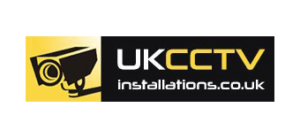Central London buzzes with life It’s a mix of old and new, with modern business districts side by side with historic landmarks. Tourists & locals mingle in the busy streets, making it a vibrant place filled with constant movement. To tackle the unique challenges of such a lively area, Closed-Circuit Television (CCTV) systems are crucial. This article explores how CCTV affects daily life in Central London, enhancing security, boosting community well-being & seamlessly blending into the urban landscape.
Enhancing Public Safety and Deterring Crime
CCTV systems act as a big deterrent to criminal activities. They give residents, workers, and visitors a sense of security. Cameras in main streets, transport hubs & shopping areas remind everyone that the area is watched. This reduces crimes like theft, vandalism, and assault. The knowledge of being watched makes potential criminals think twice.
Modern CCTV allows real-time monitoring—security staff can watch live feeds and respond to any incidents instantly. This stops crimes from getting worse & keeps the environment safer. Many CCTV systems can link with alarm systems for automated alerts during unusual activities, boosting overall security.
Supporting Law Enforcement and Enhancing Investigations
For law enforcement, CCTV footage is invaluable. It provides critical evidence that helps solve crimes and prosecute offenders. High-res cameras capture clear images essential for identifying suspects and understanding incident details. This objective record helps resolve disputes & verify witness statements.
CCTV systems greatly enhance investigative abilities. By reviewing footage, investigators can reconstruct events, offering detailed accounts to understand context & identify those involved. Often, footage provides crucial leads helping police track suspects and gather more evidence—a vital tool for both immediate & long-term investigations.
Boosting Public Confidence and Creating a Safe Environment
The presence of CCTV cameras makes people feel safer, encouraging them to enjoy Central London more freely. Cameras monitoring parks, squares, and other public areas make people more comfortable spending time outside—this fosters community engagement & use of public spaces.
CCTV also reduces anti-social behaviour like vandalism, loitering & public disturbances, making public areas nicer for everyone. Building trust between the community and authorities is key for effective CCTV use. Educating the public about how CCTV works & its benefits reassures them about surveillance measures.
Clearly communicating purposes & policies regarding CCTV use helps ease privacy concerns & builds trust in the system.
Enhancing Business Operations and Preventing Theft
CCTV systems are valuable for monitoring business operations & ensuring adherence to company policies. Managers can use footage to check employee performance ensuring staff follow best practices and provide great customer service. Footage from real-life scenarios can be used for training purposes too—helpful for new employees learning best practices.
CCTV also protects businesses from internal & external threats safeguarding assets & reducing losses. Cameras in stockrooms help prevent theft ensuring stock levels are accurate. Monitoring transactions & employee activities helps detect frauds protecting the business’s financial integrity.
Supporting Emergency Services and Coordinating Responses
In emergencies, CCTV helps manage & respond effectively. Real-time monitoring lets emergency responders assess situations quickly coordinating their actions more efficiently ensuring swift responses. CCTV monitors evacuation routes ensuring smooth evacuation during emergencies preventing bottlenecks.
It also contributes to better preparedness through continuous monitoring and data collection—footage from past incidents trains emergency personnel improving readiness for future events. Data from CCTV helps plan & allocate resources more efficiently during emergencies directing help where needed most.
Balancing Security and Privacy
While CCTV offers many benefits balancing security needs with privacy concerns is crucial to maintain public trust. Ensuring systems comply with data protection laws like GDPR protects privacy using techniques such as data masking without compromising surveillance effectiveness.
Maintaining trust is key—involving the community in discussions about use ensures transparency in policies building trust proactively addressing privacy concerns by providing clear information about data usage eases public apprehensions ensuring positive relationships with the community.
Embracing Technological Advancements
Modern CCTV systems are equipped with advanced technology enhancing effectiveness. High-def cameras capture clear images essential for effective surveillance even at night due to night vision capabilities maintaining round-the-clock security.
Remote viewing allows property owners & security personnel to monitor feeds from any location through mobile applications or web-based platforms offering flexibility & convenience. Advanced systems also utilise motion detection technology triggering alerts during unusual activities as well as AI analytics providing actionable insights enhancing security measures further.
Future Directions for CCTV in Central London
CCTV systems increasingly integrate with smart city initiatives leveraging advanced tech to enhance urban living—including IoT devices enabling seamless communication between various urban infrastructure components supporting applications ranging from traffic management to environmental monitoring through real-time data support advancing AI algorithms predicting potential threats enabling proactive measures facial recognition tech enhancing real-time identification supporting both security operational efficiency continuous developments balancing security needs privacy concerns critical developing ethical frameworks ensuring responsible usage ongoing dialogue maintaining trust necessary continuous expansion beyond traditional uses valuable insights urban planning designing safer cities integrating sensors supporting environmental initiatives monitor air quality traffic emissions other factors profound multifaceted impact on life enhancing safety supporting law enforcement improving business operations assisting emergency services plays vital role balancing benefits privacy concerns central London leveraging advancements fostering engagement creating safer secure vibrant environment


